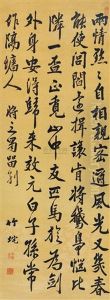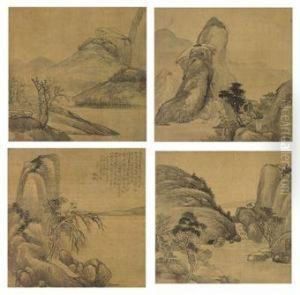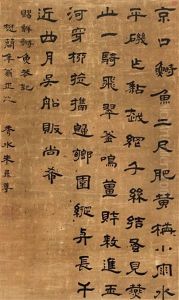Zhu Yizun Paintings
Zhu Yizun was a prominent Chinese poet and literary scholar during the Qing Dynasty. Born in 1629 in Jiaxing, Zhejiang Province, he lived during a transformative period in Chinese history, which saw the end of the Ming Dynasty and the establishment of the Qing Dynasty by the Manchu rulers.
Zhu Yizun was educated in the classics and showed an early talent for poetry and literature. He became a successful candidate in the imperial examinations, which was the traditional pathway for social advancement and a career in the civil service for Chinese literati. However, despite his academic accolades, Zhu's career in officialdom was limited, and he spent much of his life focusing on scholarly pursuits and poetry.
As a poet, Zhu Yizun was known for his mastery of various poetic forms, including regulated verse (律詩) and ci poetry (詞), which is a lyric form characterized by irregular lines and varying tonal patterns. His poetry often reflected his deep connection to the traditions of the past, as well as his response to the political and social changes of his time. Zhu's erudition and reverence for classical Chinese literature were evident in his work; he was a leading figure in the early Qing literary movement that sought to revive and continue the cultural legacy of the Ming Dynasty.
Zhu Yizun's scholarly contributions were significant as well. He compiled and edited several important literary anthologies and commentaries, which helped to preserve and transmit the cultural heritage of China. Among his notable works is the 'Ming Poetry Anthology' (明詩紀), which is a comprehensive collection of Ming Dynasty poetry.
Despite the political turmoil and the challenges of living under a new regime, Zhu Yizun's dedication to literature and poetry never wavered. His works were highly esteemed by his contemporaries and later generations, and they continue to be studied and appreciated for their artistic merit and historical significance. Zhu Yizun passed away in 1709, leaving behind a rich legacy as one of the leading literary figures of the early Qing period.



